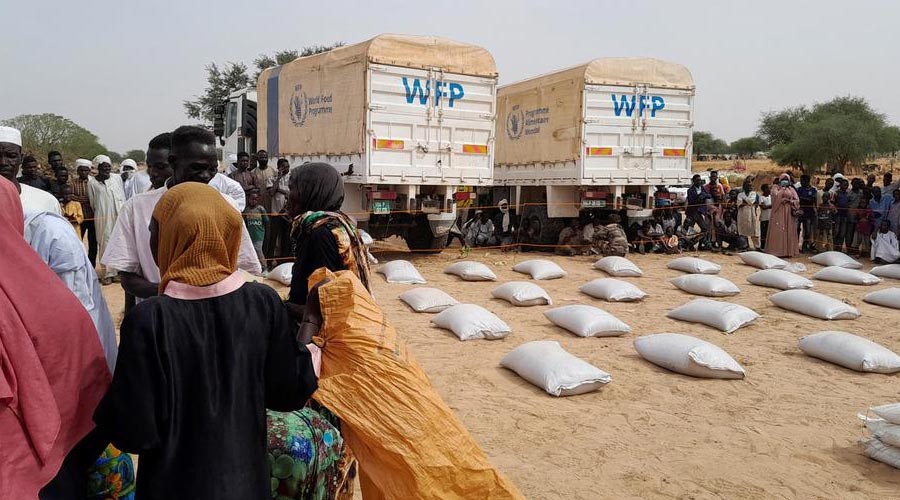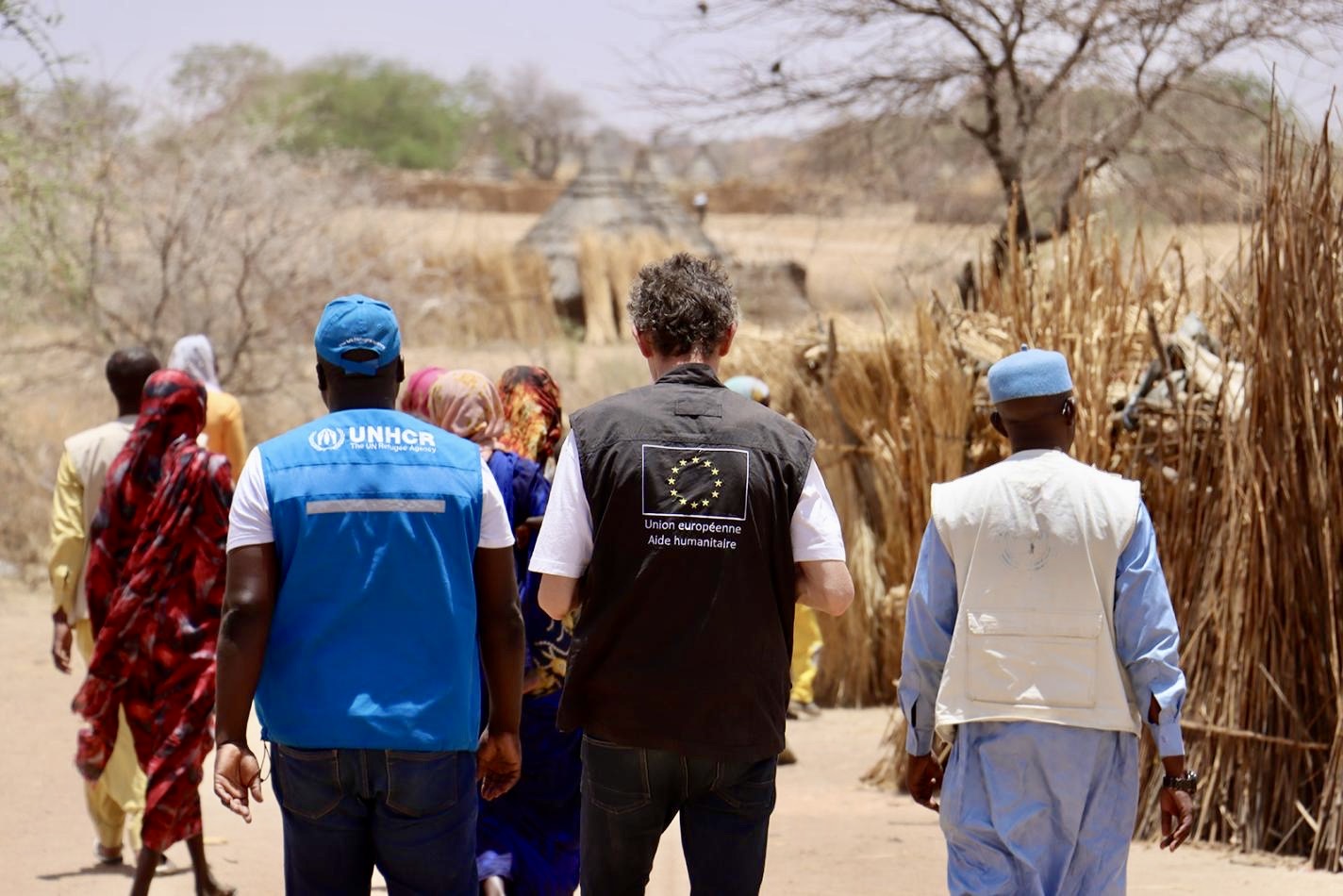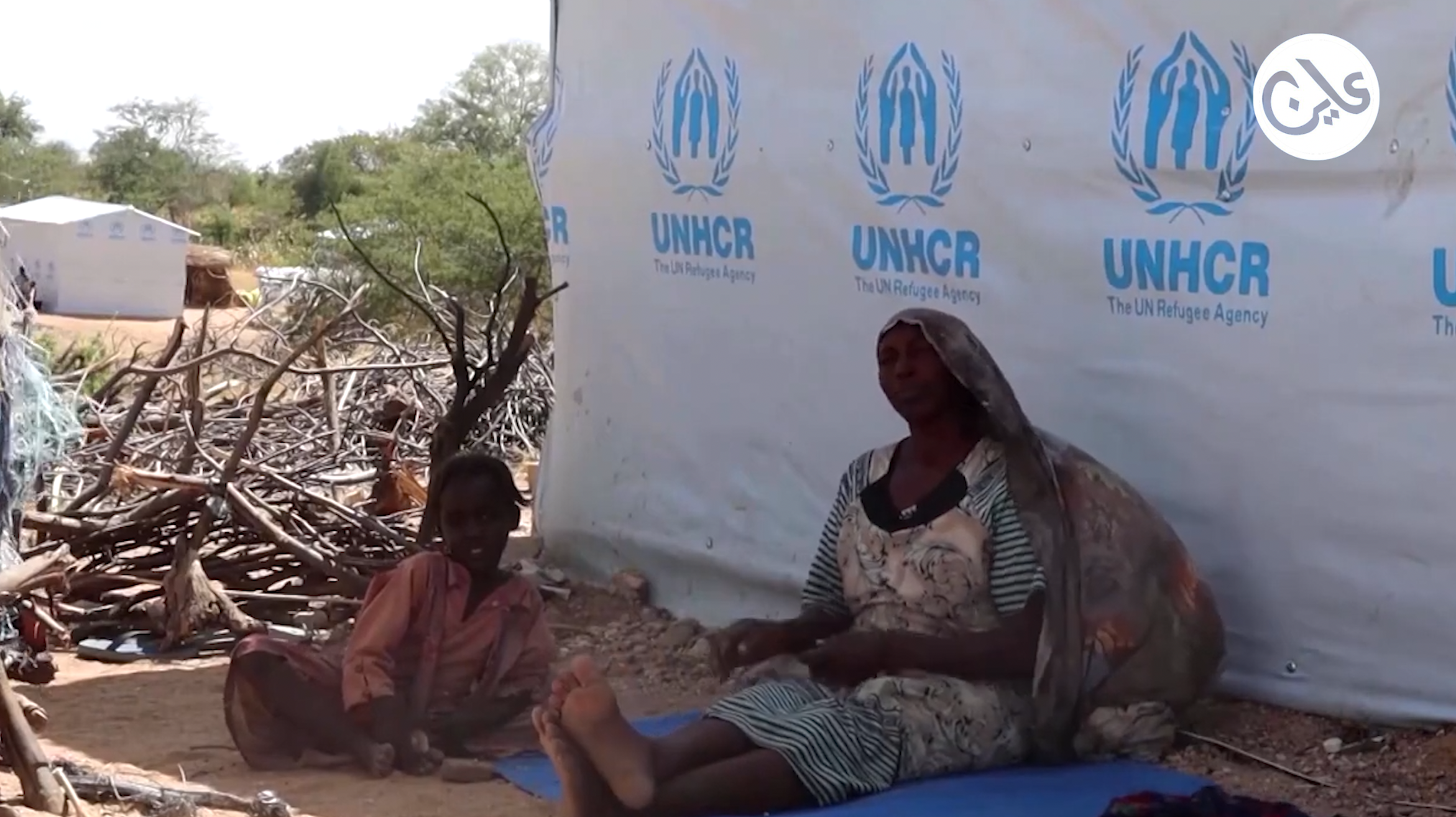Dying to help, the targeting of aid workers in Sudan
22 May 2024
As the 13-month-old armed conflict in Sudan continues to ravage the country, relief workers have found themselves victims of killings in the hands of gunmen. In May, gunmen killed two relief workers attached to the International Committee of the Red Cross (ICRC), who opened fire as they drove from an assessment mission in Layba, East Jebek Mara, in South Darfur State. Three other aid workers who survived the incident are nursing serious injuries. The mercenaries shot at the vehicles, even though they were flying the ICRC flags, a clear sign that they were humanitarian organisations.
The fierce fighting has led to an unfolding crisis for aid givers. Last year, 22 aid workers were killed, 5 kidnapped, and 29 grievously injured, as per the Aid Workers Security Database.
“The very day fighting broke out across the country; tragedy struck the humanitarian community. Three World Food Programme (WFP) staff members—Osman Ali, Siddig Mohammed, and Yousif Elzain—were killed in North Darfur,” said Eddie Rowe, WFP Country Director and UN’s acting Humanitarian Coordinator in Sudan. “These dedicated humanitarian workers had been in a remote area, delivering emergency cash assistance to some of Sudan’s most vulnerable people.”

Aid workers have narrated horrific experiences at the hands of conflicting parties but portrayed a willingness to continue fighting for vulnerable citizens. A humanitarian, who sought anonymity, narrated how armed men from the Rapid Support Forces (RSF) asked him to redirect aid intended for a certain community, a proposal he rejected. This, however, earned him a thorough beating and days of detention. He was unrelenting, leading to the gunmen holding the supplies for days. It took the intervention of the native administration to have them released.
Abraham Husaan, an aid worker based in North Kordofan, insists that they are caught in the crossfire. “All the fighting parties target humanitarian workers, including the RSF, the Sudanese military, armed movements, and the al-Barra battalion, which fights besides the army,” he quipped.
Yet, death, threats and intimidation will not kill their zeal for a better country.
“I work in a very challenging environment and risk everything but I’m insisting on helping people,” said Jabber Hussan, an aid worker in North Darfur. Hussan had to evacuate his family to Kampala, Uganda, and register them as refugees, before returning to serve his country.
“I want to help people. The humanitarian needs are growing. I go to the office every day for work, though the heavily armed clashes happen in the city. Both sides of the war don’t respect aid workers, and some even treat us like an enemy or as a target,” he added.
As the war drags on, leading humanitarian organisations continue to condemn the targeted killings of individuals who seek to give necessities to the vulnerable victims of war.

The spokesperson of the ICRC Delegation in Sudan, Adnan Hamza, told Ayin the targeting of aid workers is “unacceptable.” He termed the death of the ICRC staff a misunderstanding and lack of knowledge regarding the humanitarian work, which “resulted in the painful accidents that happened in South Darfur and Khartoum.”
“The targeting of aid workers has a negative impact on the humanitarian response and therefore hugely affects the people who receive assistance from the ICRC or other humanitarian organisations working in the humanitarian field,” he added.
The targeted killings have come at a cost, including the suspension of operations by some organisations, particularly in areas where conflict is rife.

This month, Médecins Sans Frontières (MSF) suspended work in Medani Teaching Hospital over what it termed harassment, obstructions, and security incidents, which included the looting of the hospital.
“MSF calls on warring parties in Sudan to stop violating health facilities and guarantee the safety of medical personnel. Amidst the growing insecurity, we have been unable to bring new staff and medical supplies into the area due to the denial of travel permits, and have faced repeated security incidents, such as looting and harassment, affecting our ability to provide medical care,” according to a statement.
Late last year, the organisation suspended its support for surgery operations in Bashaair Hospital, South Khartoum, after the army refused to give access to medical supplies in addition to a delay of staff work permits.
The targeted killing of aid workers goes against International Humanitarian Law (IHL) Rule 31, which emphasises that humanitarian relief personnel must be respected and protected. Parties to an armed conflict must ensure that humanitarian workers have the freedom of movement to conduct humanitarian operations.
Only in the case of “imperative military necessity” may their movements be restricted; these restrictions must be limited and temporary, such as when relief operations interfere with military operations and could endanger humanitarian actors.
Further, the more humanitarian actors are targeted, the less chance much-needed aid reaches those affected. Unfettered access and support to aid agencies is critical, according to Clementine Nkweta-Salami, the UN Humanitarian Coordinator, in a public address. “The people of Sudan are in the path of a perfect storm that is growing more lethal by the day,” Nkweta-Salami said. “Right now, aid organisations face unacceptable obstacles at every turn. We need the parties to the conflict to facilitate deliveries via all necessary routes, both across battle lines and across borders.”


